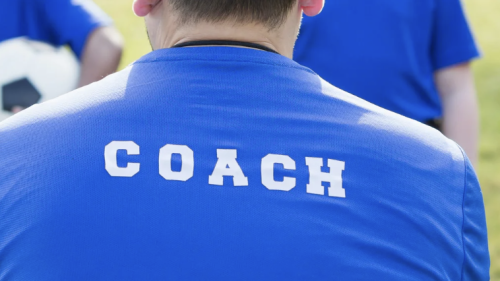Meet Bryn!
Bryn Oldham is an Assistant Lecturer in Counselor Education and Supervision at Kent State University, where she specifically teaches in the Addictions Counseling Certificate Program (ACCP). Ms. Oldham is currently licensed in Ohio as a Professional Clinical Counselor with Supervisory Endorsement (LPCC-S) and brings vast experience in clinical mental health counseling, training, and consulting. She is passionate about reducing the stigma of mental health concerns and educating others around severe and persistent mental illnesses and substance use disorders.
We spoke with her about the online Addictions Counseling Undergraduate Certificate Program, her background, and the career opportunities available to graduates in this high-demand field.
The Kent State Advantage in Addictions Counseling Education
What makes the Addictions Counseling undergraduate certificate at Kent State stand out is the quality of the program. It was developed by experts in the addictions field and designed to give students all the necessary training hours for licensure eligibility as a chemical dependency counselor in Ohio.
A major benefit is that successful completion of the first course provides students the opportunity to apply for the Chemical Dependency Counselor Assistant (CDCA) Preliminary credential from the Ohio Chemical Dependency Professionals Board (OCDPB). The CDCA is an employable credential in Ohio, and with it, many of our ACCP students have started their counseling careers!
Lastly, our program is meaningful to students. I have many students come back and tell me that it changed their perspective on addictions counseling and the dilemma of addictions in our society. The fact that the program can be taken 100% online (except for the practicum) is also essential for many students’ schedules. Students interested in flexibility can learn more about Kent State Online.
Who Should Enroll in the Online Addictions Counseling Certificate Program?
The ACCP is designed for anyone who is interested in or might want to work in the addictions field. It gives you all the training hours needed to sit for applicable licensure in the state of Ohio.
This program is also appropriate for those who want to be in the broader helping field and are unsure of which path to take. We’ve had many students say they did not think they were interested in working in the addictions field until after taking the first course in the ACCP. If you are planning on working with people, you will work with people who have addiction(s).
Hands-On Learning Through Real-World Practice
It’s imperative to give students real-world examples of the content they study so they can apply what they learn with their future clients. In the ACCP, we look to hire instructors who have experience working in the addictions field. Many of our instructors are currently practicing in addictions counseling and therefore have their fingers on the pulse of trends and patterns.
While teaching evidence-based practices in addictions counseling, the instructors can describe what it looks like in the real world (setting, group practicalities) as well as client responses and outcomes. Students who take the 100% asynchronous online courses get these benefits as well because we used experienced clinicians to help develop the online courses. Online, the students get to interact with their classmates in counseling simulations as well as “clients” with which to practice.
Faculty Spotlight: Bryn Oldham’s Journey to Kent State
I was an addictions counselor locally at Townhall II for nearly eight years. I enjoyed it and found it very rewarding. I then worked at NEOMED in their psychiatry department in the Best Practices in Schizophrenia Treatment (BeST) Center, where I served as a consultant and trainer of clinicians in cognitive remediation for schizophrenia. Though this seems like a switch from addictions counseling, I found that addiction was a significant issue in the schizophrenia population. I am sure to impress upon my students that addiction does not discriminate.
After 10 years at NEOMED, I came across a job posting from Kent State University for a faculty position to work primarily for the ACCP. Addictions work was my calling and Kent State was my Alma Mater. I started at Kent State in August 2024. This program has brought me much fulfillment.
Career Outcomes and Professional Roles for Addictions Counseling Undergrad Certificate Graduates
We’ve seen many students get hired by the site from which they completed their practicum. We’ve heard from supervisors that the level at which these undergraduate students perform is impressive. The need for addictions clinicians is such that agencies providing Substance Use Disorder (SUD) treatment are excited and eager to host these students as practicum students, which opens doors for future employment. ACCP graduates are seen as specialists where there is a gap. The need makes them a hot commodity.
Our ACCP graduates have their CDCA Preliminary credential from the OCDPB at the time of completion, which is an employable credential in Ohio. They also have hundreds of hours of practical experience required by the OCDP Board toward the 2,000 practice hours for Chemical Dependency counselor licensure eligibility.
The career areas I have seen our graduates move into include:
- Addictions counseling
- Case management
- Crisis/helpline work
- Centers for supervised visitation
- Graduate and PhD programs at Kent State
Begin Today
Unfortunately, there is a great need for well-trained addictions counselors in Ohio. Fortunately, the Addictions Counseling Undergraduate Certificate offers an accessible pathway to chemical dependency licensure in the state of Ohio. Addiction is common, pervasive, and highly treatable! If you are going in to the “helping professions,” I hope you will consider this rewarding field.
Any student interested in more information about the Addictions Counseling Certificate Program (ACCP) can reach out to Bryn Oldham directly:
- Email: boldham@kent.edu
- Phone: 330-672-4091









